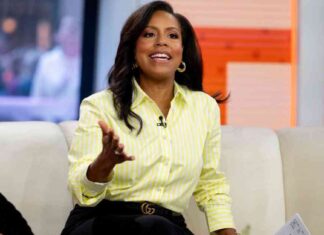One can hardly blame WDR for the fact that the eight candidates for the European Parliament who took part in the discussion, with the exception of Ms Strack-Zimmermann and perhaps Katarina Barley, are virtually unknown to a wider audience. That’s just how the EU is: it is on the very periphery of most citizens’ interest.
Nevertheless, this fact alone cast a telling light on the event: second and third-row politicians had to act as if they were recognized political figures. This alone made the debate provincial.
The title of the show was telling: “Election Arena 2024 Europe” – Europe, the actual topic, in last place. But the “format” that the WDR had come up with looked much worse – probably in the naive hope at best of being particularly close to the people and democratic. It completely refrained from structuring the event.
Instead, he gave the floor to the “people”. Questions were asked randomly from the audience. Neither the moderator nor the presenter intervened to focus them or prevent digressions. Everyone was able to speak as they pleased. So it was no surprise that there was constant confusion – from the war in Ukraine to biodiesel.
This was a clear demonstration of what a declaration of bankruptcy it is when journalists completely withdraw and refuse to organize, accentuate and follow up on topics. And then act as if this were a democratic virtue. The moderators were human microphones, nothing more.
This is particularly important because the European Union is a particularly difficult subject. Dissatisfaction with the EU is widespread, but interest in it is low. Knowledge about the EU is also not particularly great. On average, the population is not very well informed about its policies, its successes and failures.
Because that is undisputedly the case, the programme would have required meticulous journalistic preparation to make the dull subject of the EU suitable for the public and interesting. But since that was not done, things turned out as they had to under these circumstances. Once again it was shown that an audience gathered for a town hall discussion is usually more interested in their shirts than their skirts.
All topics – from Israel-Hamas to the Ukraine war to housing construction – were immediately or within a few minutes turned into domestic politics. Instead of European unification and its successes and deficits, the discussion was almost exclusively about German domestic politics. This confirms that the EU is a topic of lesser interest.
In the past, it was once said in mockery of European unification: “If you have a grandfather, send him to Europe.” The WDR broadcast demonstrated the unexpected relevance of this saying. And indeed, the eight discussants, including the younger ones, looked a little like political grandmas and grandpas, Manfred Weber included.
The lack of concept behind the event meant that none of the EU’s major problems were adequately discussed, let alone explored in depth: neither the EU’s common defense capabilities, nor the planned EU enlargements, nor the East-West divide within Europe, nor the relationship with China or the USA, where Trump is once again at the door.
No one in the group managed to make the EU’s successes shine. No one was really self-critical about the EU’s tendency to be aggressive. And last but not least: the AfD candidate was able to create the impression, unhindered and unchallenged, that his party was by no means hostile to the EU.
Anyone who thinks the EU is important and worth protecting in the face of the many global crises and the rise of various nationalisms must make an effort to explain it as well as possible, to make it understandable and comprehensible. To criticize it precisely. It would be a matter of making something that seems abstract concrete. The WDR, the presenter Ellen Ehni and the presenter Gunnar Breske failed spectacularly in this task.
Instead of facilitating a serious debate, they tried to host an event that made the audience feel like they were in a village pub. It would be hard to think of a worse way to discredit the European Union. The “left-wing” WDR has brilliantly confirmed a “right-wing narrative”.





